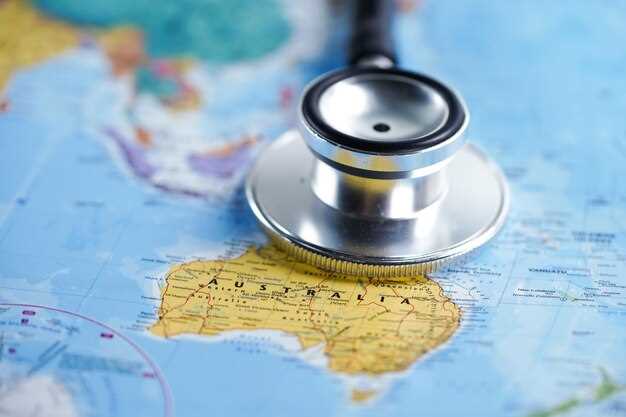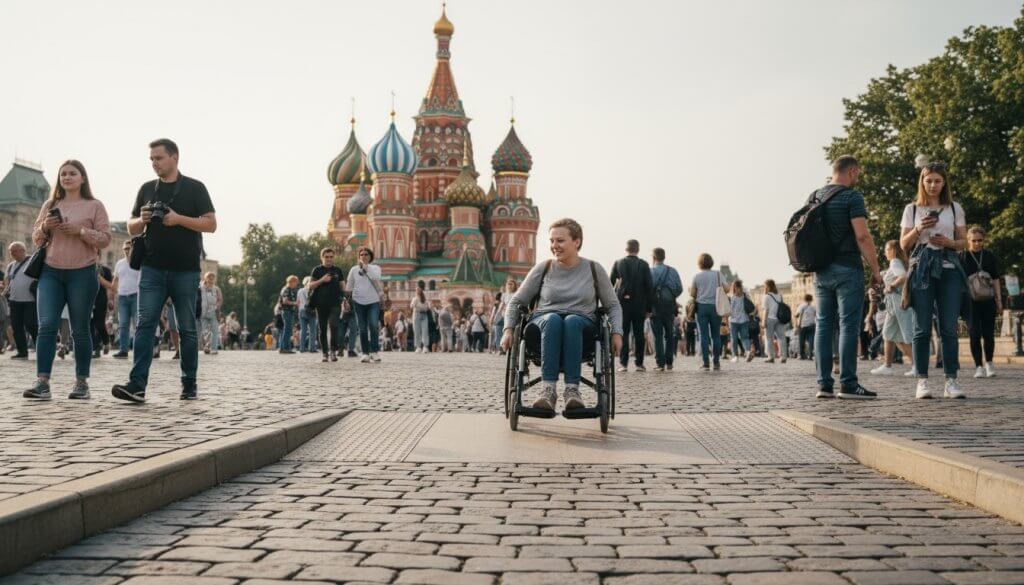Choose a main klinik abroad that runs a multidisciplinary program with transparent pricing, verified hospital affiliations, and a dedicated patient coordinator who speaks your language.
When you review treatments, prioritize packages that include preoperative hematology assessment, clot risk screening, surgical planning, and comprehensive postoperative care.
Budget smartly by comparing total costs, travel, and recovery needs; many centers accept mastercard and offer bundled care that reduces out-of-pocket expenses.
Confirm hospital accreditation, safety protocols, and how support works after you returned home. Ask for a detailed care map and written estimates before you fly.
Use this guide as your practical checklist: define your main goal, map access to specialists, and verify the clinic’s support network is ready to help you abroad and back home.
Practical pathways to affordable care abroad
Get three itemized quotes within 48 hours from private больница networks across three countries, and compare the all-in price for the operation, anesthesia, facility fees, and postoperative support. Prioritize hospitals with established accreditations and accessible laboratory services, and request a written agreement that outlines the care plan, timelines, and contingencies. Include price Breakdowns for stay, tests, and aftercare to avoid hidden costs.
- Procedure definition and credentials
- Clarify the surgical plan, expected length of stay, and the surgeon’s track record; ask for publicly available outcomes data and a list of completed cases similar to your situation.
- Verify the hospital is accredited by a recognized body and that the laboratory handles your tests with certified equipment and qualified staff.
- Confirm language support and the availability of a patient liaison to coordinate scheduling, transfers, and discharge planning, and ensure test results are entered into certified electronic records.
- Cost transparency and agreements
- Request itemized quotes that break down surgical fee, anesthesia, operating room, ICU if needed, meds, labs, imaging, and postoperative therapies.
- Include all nonmedical costs: private room, hospital meals, hotel or caregiver lodging, and transportation to the facility.
- Negotiate payment terms, including international payment methods, currency, and any escrow or refund protections; confirm a written agreement with contingencies if plans change.
- Estimate total money spent, including postoperative medications and required follow-up tests, to compare value across options.
- Travel and booking plan
- Coordinate the booking of flights and hospital appointments within one window to minimize delays; secure flight tickets with flexible change policies.
- Book flights with options for easier recovery and align hotel stays within walking distance of the hospital; verify private bathroom facilities and quiet rooms for rest.
- Coordinate visa requirements, travel insurance that covers medical procedures, and local transfers from airport to hotel and hospital.
- Postoperative care and continuity
- Define the postoperative schedule, including in-hospital recovery milestones and home-based rehabilitation; request telemedicine follow-ups and an in-person visit if needed within a reasonable period.
- Ensure a clear path for pathology review, imaging, or second opinions if results or plans differ from expectations; confirm how completed care milestones are documented.
- Arrange a direct line of contact with the medical team for questions during the recovery period.
- Risk management and special considerations
- For cancer-related care, verify multidisciplinary board review, access to targeted therapies if applicable, and continuity of pathology testing in a certified laboratory; request a second pathology review if feasible.
- Ask about complication rates for the specific procedure and what the hospital covers in case readmission or revision surgery is needed.
- Check the local and international protections in the agreement, including cancellation terms and refunds if the planned care cannot proceed.
- Global insights and long-term value
- Compare outcomes data across countries, focusing on complication rates and hospital infection controls, not just price; look for data published by independent patient groups or national registries.
- Assess total money spent, including post-discharge travel back home, postoperative medications, and any required follow-up tests; calculate the cost-to-value ratio for each option.
- Keep a copy of all documents, including translations, so that your domestic physician can review the care plan and verify the operation performed abroad.
With this approach, you gain control over costs, timing, and quality, while maintaining a direct link to a hospital that can deliver outcomes aligned with global insights.
Compare country costs and accreditation for popular procedures
Compare at least two accredited centers per country and verify standartscomplience and efqm alignment before booking. When you arrive, bring written cost estimates for pre-op tests, surgery, anesthesia, hospital stay, implants or devices, and post-op rehabilitation to compare the true money you will spend. Centers that specialize in your procedure offer higher success rates and better aftercare, and they typically provide coordinated packages that reduce delays after the operation, especially for families traveling with a child or caregiver. Use data from recent patient surveys to assess normal recovery times and the availability of little or no wait times for follow-up appointments.
Use globalization to your advantage: países with strong medicina traditions and centers that actively publish outcomes tend to provide higher relevance for your chosen procedure. For knee replacement, you want a facility that has robust clots prevention protocols and a clear pathway for physians and nurses to monitor progress after discharge, with a focus on early mobilization and discharge planning. Look for centers that arrive at a transparent total-price model and provide post-operative care plans that extend into home recovery.
To maximize value, check whether centers publish patient-reported results and whether они осуществляет continuous quality improvement initiatives such as efqm-driven reviews and standartscomplience audits. If you require pediatric or family support, choose centers that specialize in family care, child-friendly recovery rooms, and caregiver guidance. Be wary of packages that omit important elements like anesthesia coverage, medication, or DVT prevention, and always request itemized charges before committing.
Below is a practical snapshot of costs and accreditation patterns for four popular procedures across representative countries. Use this as a starting point to identify where you may save money without compromising safety or quality. The values reflect typical ranges and can vary by region, city, and facility level.
| Procedure | Kraj | Typical cost range (USD) | Accreditation/Standards | Notable centers or notes | How to maximize value |
|---|---|---|---|---|---|
| Knee Replacement | USA | 40,000–60,000 | JCI, ISO 9001; efqm alignment; state licensure | Major academic centers, multi‑hospital systems | Compare two to three centers, confirm post‑op rehab options and DVT protocols |
| Knee Replacement | Turcja | 10,000–14,000 | ISO 9001; EFQM; standartscomplience encouraged | High‑volume orthopedic groups with bundled care | Ask for total package, including rehab and home care, and ensure rapid follow‑ups |
| Knee Replacement | India | 7,500–12,000 | NABH/ISO; efqm options | Centers specializing in joint care with international patients | Request detailed cost breakdown and postoperative physical therapy plan |
| Dental Implants (per tooth) | USA | 3,000–4,500 | JCI, ISO 9001; efqm | Specialized implant centers; sometimes university clinics | Confirm included prosthetic crown, abutment, and aftercare guarantees |
| Dental Implants (per tooth) | Hungary | 1,000–1,800 | ISO 9001; EFQM; standartscomplience | High‑volume dental tourism centers | Choose centers with long‑term warranty and clear follow‑up visits |
| Dental Implants (per tooth) | India | 600–1,400 | NABH/ISO; efqm | Economy clinics with international patients | Verify material quality, lifetime warranty, and alignment with local regs |
| Cataract Surgery (per eye) | USA | 3,000–5,000 | JCI, ISO; efqm | Leading eye‑care centers and universities | Look for premium IOL options and inclusive post‑op care |
| Cataract Surgery (per eye) | Turcja | 600–1,200 | ISO 9001; EFQM; standartscomplience | Specialized eye clinics with rapid access | Ask about same‑day surgery and transportation assistance |
| Cataract Surgery (per eye) | India | 400–1,000 | NABH/ISO; efqm | High‑volume eye hospitals | Request a choice of IOLs and clear pricing for follow‑up visits |
| Bariatric Surgery | USA | 20,000–35,000 | JCI, ISO; efqm | Specialized bariatric programs with structured aftercare | Evaluate long‑term weight‑loss results and nutrition coaching |
| Bariatric Surgery | Turcja | 4,000–7,000 | ISO 9001; EFQM; standartscomplience | Bundled procedures including meals and follow‑ups | Check for weight‑loss maintenance programs and surgical risks overview |
| Bariatric Surgery | Mexico | 8,000–12,000 | ISO 9001; efqm | Centers with international patient coordinators | Confirm hospital accreditation and post‑op nutrition support |
When you compare, consider the full care path: pre‑op evaluation, anesthesia, the surgery itself, inpatient stay, prosthetics or devices, rehab, and long‑term follow‑up. Look for places that have explicit procedures for avoiding complications like clot formation and infections, and that publish outcome data you can verify. If a center demonstrates consistent, high‑quality results and clearly describes the patient journey–from arrival through aftercare–the price gap often reflects only logistics, not care quality. For many families, the best value comes from centers that combine higher physician experience, transparent pricing, and strong patient support networks, all while maintaining normal safety standards and patient‑centered care. проведение and постоянная работа над качеством обеспечивают уверенность, даже когда вы путешествуете за пределы своей страны. Arrive ready to compare, and choose a place where medicina and patient safety come first.
Verify surgeon credentials and hospital quality before booking
Check surgeon credentials and hospital quality before booking. Under the hospital’s credentialing office, verify the surgeon’s board certification, active license, and hospital affiliation. Request an official CV, a recent performance report, and confirmation from the medical board that no sanctions exist. Use research oraz insights from independent databases to compare at least three options for your procedure, including cancer-related surgical cases. Only consider sources that publish verifiable data; только credible sources.
Arrange a pre-treatment consultation to review the surgical plan, anesthesia approach, and recovery. Ask for an order for labs or imaging when needed, and for a clear out-patient pathway if applicable. For cancer cases, request data on margins, lymph node assessment, and verify the surgeon’s experience with similar procedures. Review the post-operative medicine plan, including analgesics and antibiotics, with the team.
Inspect hospital quality metrics: infection rates, staffing ratios, and accreditation numbers. Verify if the hospital publishes department-specific outcomes and if there is a formal patient-safety program. Look for collaborations with established centers such as Hopkins and universitario programs, which can serve as benchmarks and offer additional data for comparison.
Travel with family for those with an 8-month-old child: verify pediatric anesthesia availability, neonatal care access, and age-appropriate monitoring. susan shared insights may illustrate a similar journey; ask the hospital to share anonymized insights that can help you plan. The hospital should provide a recovery plan and arrange post-discharge support; if you prefer to stay domestic, ensure smooth transitions with a trusted local clinic.
To finalize arrangements, complete the consent form, confirm costs, and document the care pathway in a written plan that covers medications and follow-up visits. If you need to arrange care after returning home, verify domestic options and ensure you can access medications and medical records. Those traveling should keep copies of licenses, approvals, and contact details for the hospital, your surgeon, and the local embassy or consulate, and record insights from each provider to compare options.
Understand insurance coverage and financing options for medical travel
Start with a concrete step: call your insurer now to confirm international coverage and preauthorization requirements for the procedures you plan–surgeries, hematology treatments, and related care. If you have pre-existing conditions, request a clear eligibility note and document the exact limits before you book travel. This quick check helps you compare options quickly and avoid surprises upon arrival.
Use the uniclinicscom platform to gather quotes from providers that fit your multidisciplinary needs–hematology, surgical procedures, and rehabilitation. Upload your home-country medical records and request itemized estimates for hospital stays, anesthesia, and post-op care. Compare quality metrics, surgeon credentials, and patient safety scores to choose lines of care that meet your expectations.
Financing options deserve equal attention. Look for bundled pricing that covers procedure, hospital stay, and aftercare, and ask about payment plans or international financing programs. Some insurers offer add-ons for international care, and medical travel loans can bridge any gap between coverage and out-of-pocket costs. If you return home, verify there is a smooth reimbursement path and keep all invoices for potential claim processing.
When selecting partners, prioritize quality, security, and commitment to continuity of care. Check that the hospital has a world-class standard, multidisciplinary teams, and robust aftercare. Speak with representatives from johns facilities and uniclinicscom partners to confirm they can support you through the full process–from arrive for assessment to postoperative follow-up during travels–and that they offer a platform to track progress, communicate with the care team, and share updates with your family back home. With this commitment, you reduce risk and increase the likelihood of a successful outcome.
Follow a step-by-step planning checklist for a smooth trip
Step 1: Begin with a clear goal and a questions list – Define what you want to achieve with the trip and set measurable targets. Prepare a concise set of questions for physicians and clinics covering risks, safeness, procedures, medicine, and aftercare. Use medicaltourismcom to compare options and identify clinics with overseas programs or rochester-based physicians. If you travel with детям, note child-specific care requirements and pediatric safety standards. Keep eyes and clot risk on the list to avoid surprises.
Step 2: Map destinations and clinics for a medical tour – Compare centers using medicaltourismcom; evaluate innovative procedures, competition, and value. Look for rochester-based specialists or physicians with overseas programs. Check accreditation, surgeon credentials, and success rates for the procedures you consider. Prepare a shortlist and schedule virtual consultations to discuss recovery timelines and safeness of travel. If a medical tour appeals, verify in-hospital support and local follow-up options.
Step 3: Build a transparent budget – Estimate treatment fees, hospital stays, anesthesia, follow-up care, and travel costs. Note varying costs by country and facility, and compare options to see how costs stack up against similar outcomes. Costs can be higher than expected in some destinations, but bundled care can save overall spend. Include contingency funds for delays or extra tests.
Step 4: Check health and eligibility – Review current health status with your physician; address risk factors such as a clot risk or active infections. Verify medicine compatibility with the destination’s requirements; list all medicines and dosages. If you take medicine regularly, obtain doctor’s clearance and ensure supply for the full stay. Assess immunization needs and travel health advisories.
Step 5: Plan the procedures and timelines – Confirm which procedures are included in the program, the anticipated length of hospital stay, anesthesia plan, and post-op rehab. Request a written care plan from the specialist, including timelines for follow-up visits and any required local tests. Ensure you have a clear before/after care routine and a contact path with the clinic’s care team. Make sure the plan made for you covers recovery milestones, and specify how eyes or vision issues are addressed if relevant. This reduces last-minute changes and protects safeness during overseas care.
Step 6: Secure care team and contacts – Identify your primary physicians and a dedicated coordinator. Ask about who will supervise your care, how many surgeons are involved, and what language support exists. If possible, connect with a highly regarded specialist and a nurse who will be available during your stay. The team themselves can respond quickly if questions arise. Gather emergency contacts and hospital resources where you travel.
Step 7: Arrange logistics and travel timing – Schedule flights with buffer days before and after procedures. Confirm transportation from airport to hotel and to the facility. Build time for pre-op checks and post-op rest; avoid tight connections that raise risks of fatigue, dizziness, or clot concerns. For детям, arrange family-friendly accommodations and child care for hospitals visits. If you need to consider a medical tour, coordinate with the overseas clinic about local transport and visa timing.
Step 8: Documentation and insurance – Collect birth certificates, medical records, imaging, and prescriptions. Translate essential documents if needed. Obtain travel medical insurance that covers medical complications abroad and repatriation. Confirm coverage for postoperative follow-ups and potential procedures. Save digital copies and store them offline. If you need translations or letters from your physicians, request them now.
Step 9: Prepare mentally and physically – Follow a pre-travel health plan created with your physician. Maintain healthy habits, monitor medication changes, and plan for safe nutrition and hydration. Limit sun exposure around treatment days and avoid activities that risk tripping or falls. Practice relaxation techniques to reduce stress, which can affect recovery and medication needs.
Step 10: On return and follow-up – Schedule post-trip check-ins with the specialist or local physician and keep an eye on any signs that require care. Keep eyes on recovery milestones and monitor for any unusual symptoms like swelling or bleeding. Keep a log of symptoms and questions for your next consult. If you travel again, review what worked and what to adjust for the next program.
Plan for safe travel and post-treatment recovery abroad
Book a facility with integrated post-treatment care and a clear recovery plan you can follow, and demand a written program that outlines therapy, procedures, and follow-up visits. This approach helps you make informed decisions at every step and keeps you in control as you recover.
- Choosing programs and partners
- Compare at least three programs that combine treatment with post-care, focusing on a joint care model that links the hospital, clinic, and home support, and offers a range of options from conservative therapy to advanced procedures.
- Validate accreditation and request a detailed plan including milestones, expected outcomes, and a certificate of services; consider the Johns network (johns) for credible standards.
- Safety and logistics before booking
- Request a pre-travel safety briefing and a contingency plan for complications. Ensure the facility provides emergency contacts, language support, and open channels to the care team during your stay.
- Confirm visa and health insurance coverage, and outline the booking process with clear times for each step, including how you will send medical records ahead of arrival.
- Destination and care pathway
- Consider destinations with strong клинической networks; austria and toronto often supply high-quality care with coordinated aftercare. Discuss a joint pathway that starts with evaluation, proceeds to therapy, and ends with a home recovery plan.
- Ask for a careful plan that can meet your schedule, and ensure a range of follow-up options after discharge.
- Booking and practical timeline
- Use the booking portal to select a program that fits your condition, and confirm dates, transportation, and lodging as part of a single package.
- Request a schedule of times for procedures and follow-up visits, and obtain a certificate of services and a letter confirming acceptance into the program.
- Post-treatment recovery abroad: practical steps
- Begin with light activity and therapy sessions; progress slowly and follow the clinic’s instructions for progression after therapy and procedures.
- Ensure a home care plan that specifies exercises, medications, and wound care, with weekly check-ins and a plan to meet the surgeon or therapist during the stay if needed.
- Include foreigners in planning, and coordinate with a local clinician to support recovery even after you return home.
- Risk management and avoidance
- Avoid choosing providers with limited transparency; avoid procedures offered outside a certified facility, and avoid clinics that cannot provide post-discharge support for the least two weeks.
- Prepare for possible changes in the situation; keep copies of key documents and securely share them with the clinic via a trusted channel, as needed, and plan to send updates promptly.
- Choose только vetted partners who provide clear documentation and a transparent timeline for all steps.
When evaluating options, ask to meet the care team, verify open communication channels, and compare how each program handles aftercare, including therapy sessions and follow-up imaging or tests. This approach reduces risk and supports successful recovery across multiple times zones and travel contexts.
Arrange reliable post-care follow-up and continuity of care

Schedule a structured post-care plan before your trip, including a fixed follow-up cadence and a designated contact at your clinic to manage changes after discharge. If you are contacted after discharge, confirm the follow-up contacts and response times.
Ask the clinic to provide a post-op protocol that covers diseases you had, signs to report, and when to escalate to in-person visits. Ensure you receive a certificate of completed treatment and a verified plan that your home doctor can follow.
Verify the provider’s accreditations and check the medicaltourismcom database for patients' reviews, official certification, and the hospital’s record of surgical outcomes. Compare prices and payment options, and ensure the agreement includes what follows post-discharge care and any long-term monitoring.
Coordinate with your home health team and the clinics in moscow, sharing secure summaries via the provided database and ensuring care follows a single, professional plan that depends on your condition.
Set a following schedule of remote checks at regular times and in-person visits if needed. Use a secure channel to exchange imaging, lab results, and progress notes, and document times and prices for each session to avoid confusion.
Maintain a formal agreement that outlines payment terms, the timing of follow-ups, and the process to update your care plan if your condition changes. The clinic should store your records in a compliant database and provide ongoing access for your local physician; provide более detailed progress notes in the patient portal.
Ensure the program supports continuous quality checks, including a live contact line, and using standard clinical guidelines that cover your health and any surgical aftercare. The plan should spell out how follow-ups adapt to your living situation and travel times.
Choose a clinic that provides clear, patient-centered care, where you can access post-care reports, have a patient portal, and receive timely follow-up using the same care team, whether you stay in Moscow or abroad.

 Turystyka medyczna – Kompletny przewodnik po przystępnych cenowo podróżach zdrowotnych">
Turystyka medyczna – Kompletny przewodnik po przystępnych cenowo podróżach zdrowotnych">

 How to Experience Moscow’s Culinary Scene Like a Local">
How to Experience Moscow’s Culinary Scene Like a Local">
 Seasonal Guide to Moscow Festivals: What to See and When in 2025">
Seasonal Guide to Moscow Festivals: What to See and When in 2025">
 Accessible Moscow Traveling Tips for Visitors with Disabilities">
Accessible Moscow Traveling Tips for Visitors with Disabilities">
 Exploring Moscow’s Street Art and Urban Culture Hotspots">
Exploring Moscow’s Street Art and Urban Culture Hotspots">
 Kapitalna Przygoda: 5-Dniowy Plan Podróży dla Osób Podróżujących Samotnie po Moskwie">
Kapitalna Przygoda: 5-Dniowy Plan Podróży dla Osób Podróżujących Samotnie po Moskwie">
 Excursions in Moscow – Best Tours, Museums & Landmarks">
Excursions in Moscow – Best Tours, Museums & Landmarks">
 Internet Cafes in Moscow – Best Places for Wi-Fi, Gaming, and Remote Work">
Internet Cafes in Moscow – Best Places for Wi-Fi, Gaming, and Remote Work">
 Sergiev Posad Day Trip from Moscow – Top Things to See and Do">
Sergiev Posad Day Trip from Moscow – Top Things to See and Do">
 Tsaritsyno Museum-Reserve Guide – Moscow’s Historic Palace and Park">
Tsaritsyno Museum-Reserve Guide – Moscow’s Historic Palace and Park">
 Photo Exhibitions in Moscow – Best Galleries and Upcoming Events">
Photo Exhibitions in Moscow – Best Galleries and Upcoming Events">